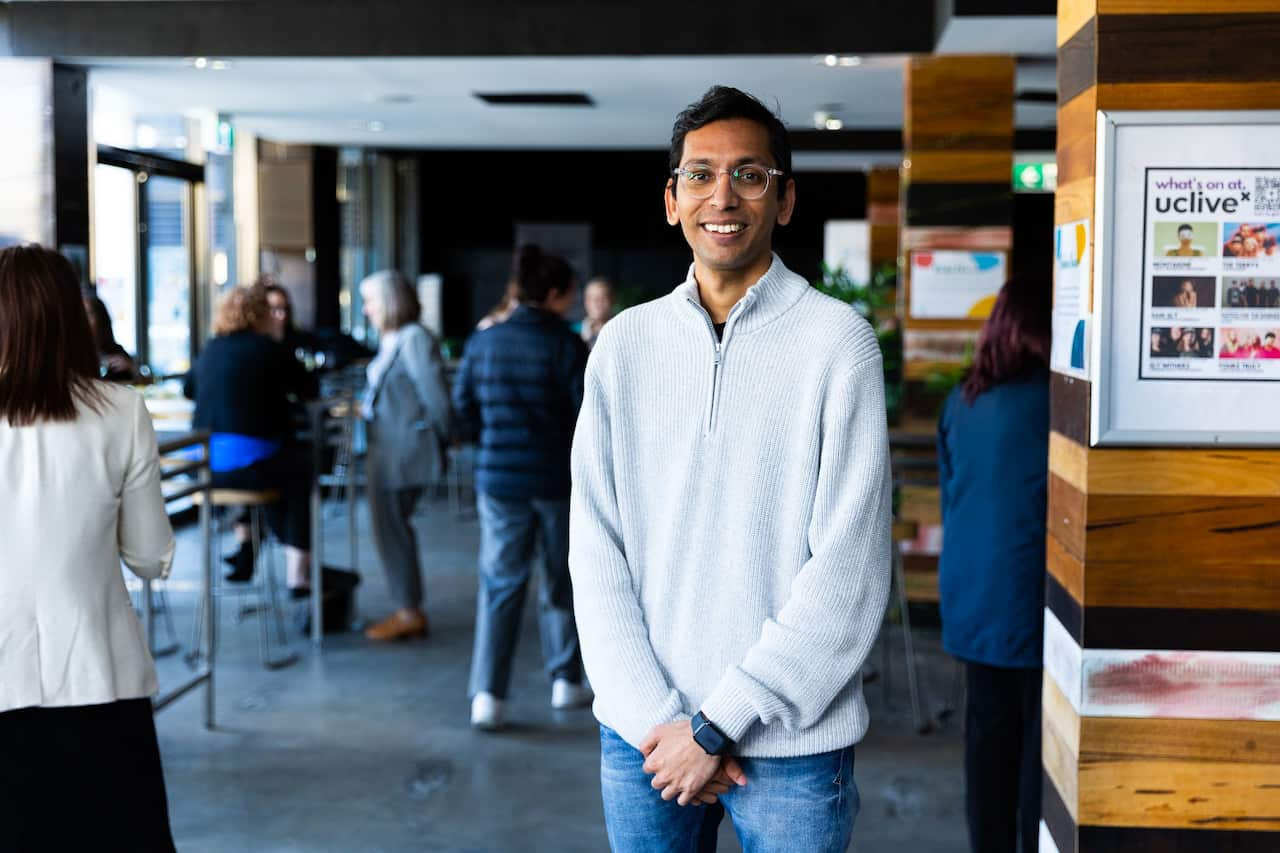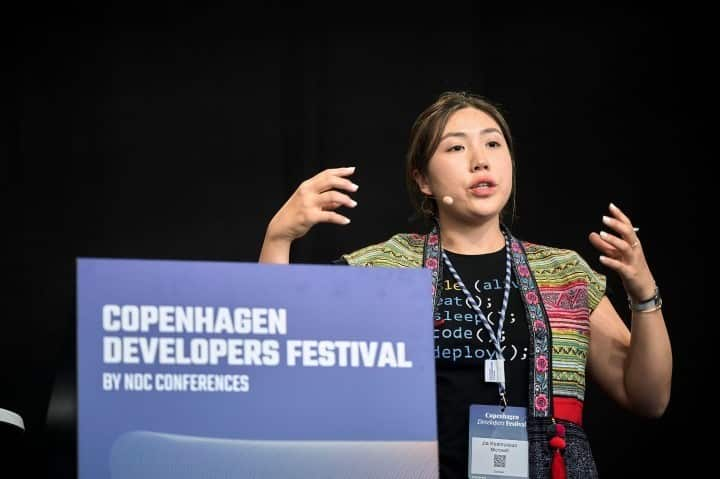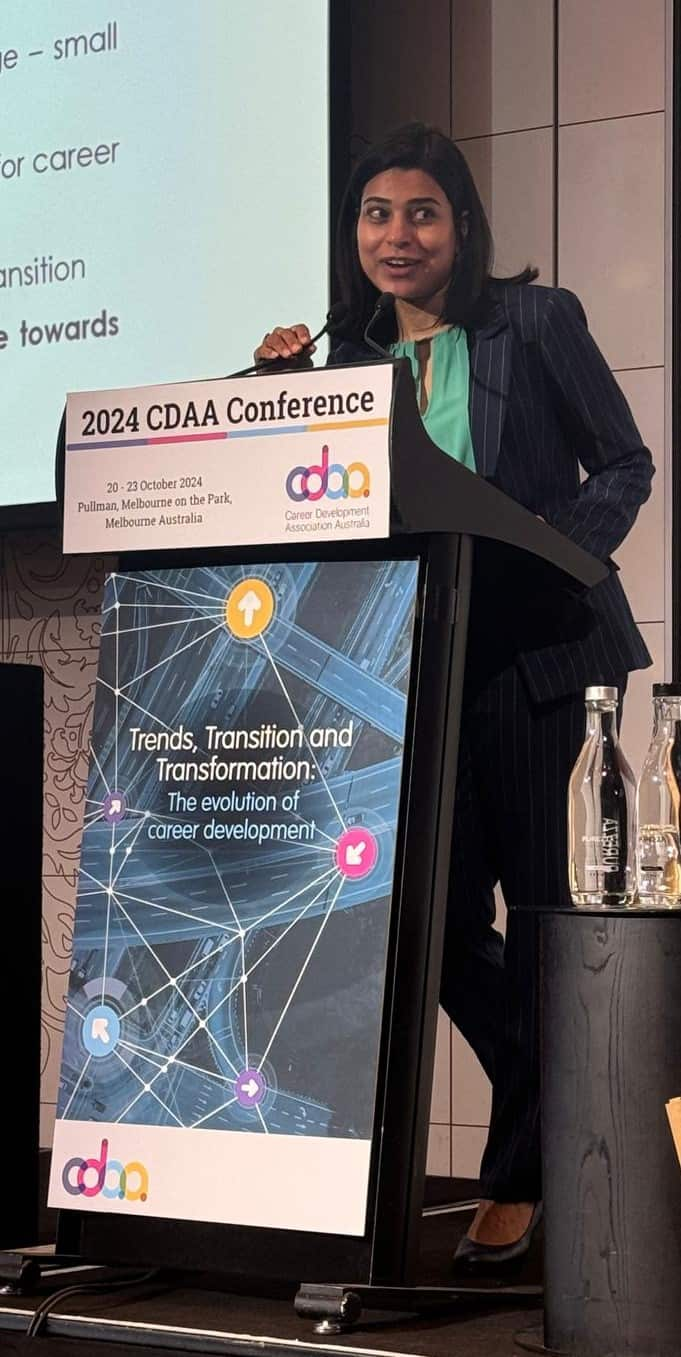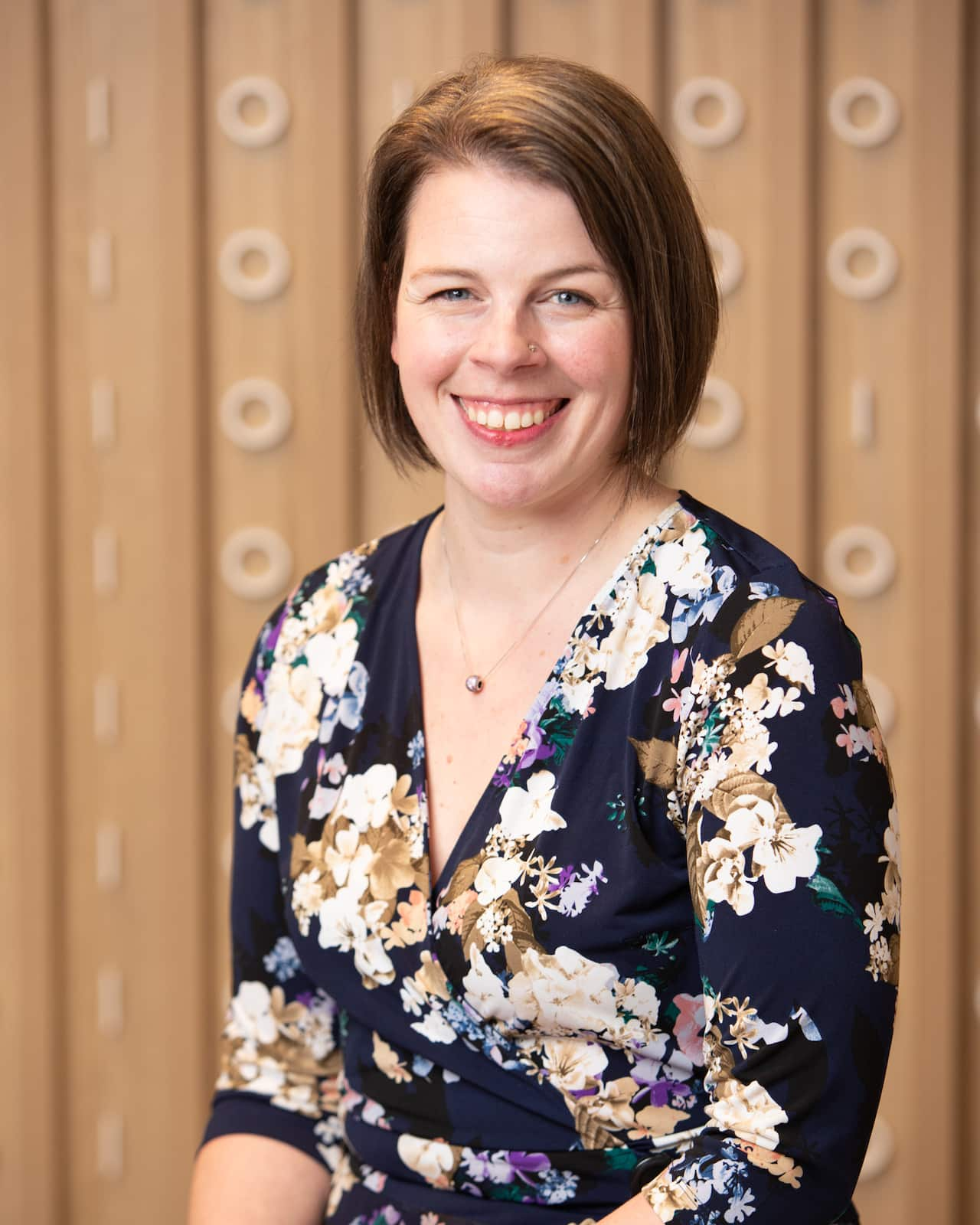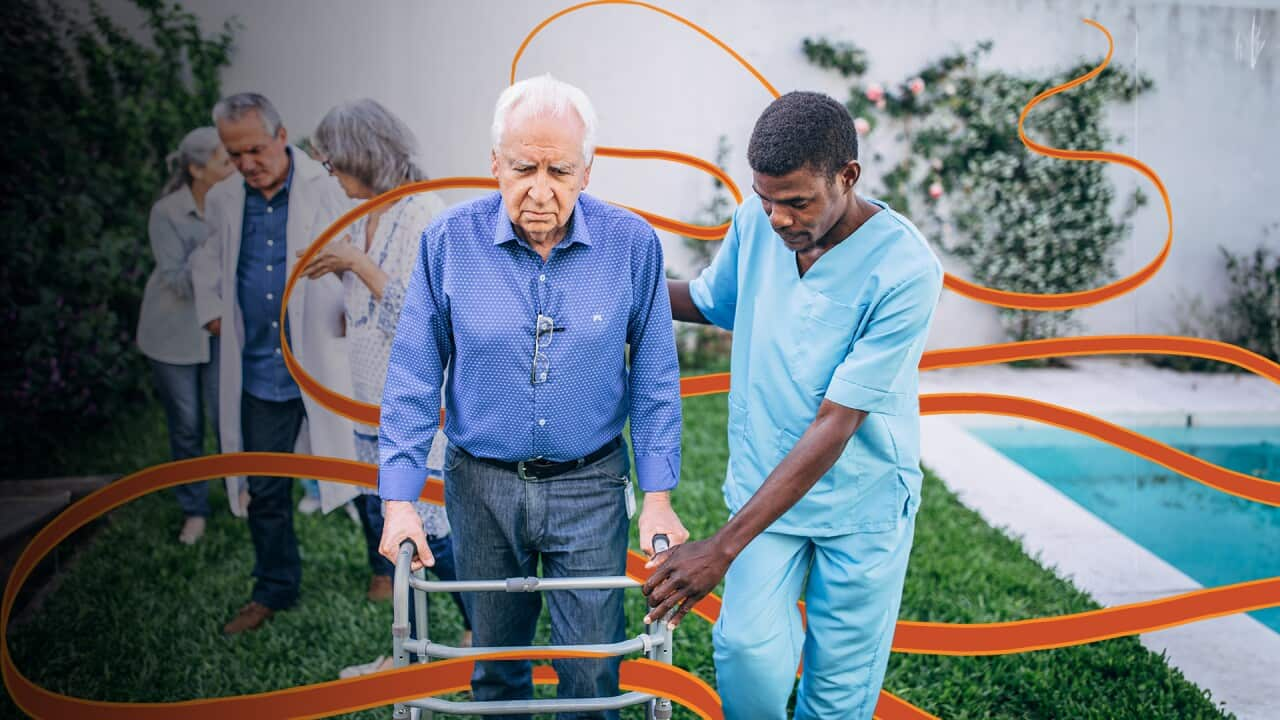spk_0
SBS acknowledges the Traditional Custodians of Country and their connections and continuous care for the skies, lands and waterways across Australia.
spk_1
Whenever I go, they would be like, what did you study? I would say, I did master's computer application. Oh, you're too overqualified for this job. It was a bit demoralising as well because it's difficult when you don't find any jobs.
spk_1
You're asking your friends, you're asking everybody, can you help me with this, or I was also applying at the same time on LinkedIn, on Seek, on Indeed.
spk_2
Welcome to Work in Progress, a podcast that follows the stories of adventurous professionals who decided to call Australia home, with helpful tips, advice from experts and leading Australian organisations on how to build your career here.
spk_2
Today we talk about information and communication technology, or ICT. Let's get to work.
spk_2
Over a third of Australia's information and communication technology, or ICT workforce is born overseas, one of the highest rates across all industries.
spk_2
Among software and applications programmers, immigrants make up to two-thirds of the workforce, with India as the leading country of origin.
spk_3
Australia needs millions of tech workers by 2030, and in fact, we also recognise that the skill shortage we have awareness of today is likely not the skill shortage that we will see in the future.
spk_2
Meet Betsy Gregg, director of migration pathways at the Australian Computer Society, ACS, Australia's leading association for professionals in information and communication Technology, or ICT.
spk_2
Her words might sound promising for many international skilled migrants.
spk_3
With emerging technologies like quantum computing and artificial intelligence and beyond, we know that the roles that we look at today on our statistics are not the roles that we'll look at in the future. We also recognise
spk_3
that the talent we have here on shore, it's just simply not enough people.
spk_2
In Australia, many ICT skilled migrants arrive with strong qualifications, 55% holding a bachelor's degree and 46% a postgraduate qualification.
spk_2
Yet, despite a national shortage of tech talent, many still struggle to find work. Some face long delays, waiting up to 2 years before landing a job in their field. So what's standing in their way, and what advice do experts have to help these professionals break into the sector?
spk_1
When I introduced myself, I said, my name is Vishal. I'm from India. And they were like, Oh no, your name is too long. We should shorten it. We will call you Vish. So I was like, OK, that's cool. But back in India, my name means a different meaning. So when you say Vishal, it means big, grandiose, but if you shorten it, then it turns into a poison back at home in my country.
spk_1
So I'm like, are you sure you want to call me Vish? And they're like, we will shorten it. Everyone from day one started calling me Vish. Now, if somebody calls me Vishal, I'm like, who are they calling?
spk_2
Aside from the mix up with his name, Vishal Mittal fondly recalls his first day working in Australia. From the start, he felt he was in a different environment compared to the company where he worked for 7 years as a software developer in Gujarat, the 5th largest state in India, before deciding to move to Australia.
spk_1
My life was pretty much stable.
spk_1
It was a really well paying job as well, but then I wanted to advance in my career, so Australia is a country where there are a lot of opportunities. There is a work-life balance over here, and plus the Australian universities have a very good ranking all over the world in terms of education.
spk_2
Vishal left his high paying job in India to pursue a two-year master's
spk_2
of data science at the University of Canberra. For the first 18 months, he studied remotely due to the pandemic and closed international borders. In 2022, he finally moved to Australia on a student visa. Initially his plan was to complete his course and explore potential opportunities, but something about Australia captured Vishal's interest.
spk_1
The air quality is so, so good over here, so it started making me feel a bit happy health-wise as well. Back in India, because of the pollution we have, it started affecting my health, so I was more sick over there. After moving here, that all stopped. Like I stopped taking any medications whatsoever.
spk_2
He still checks the air quality index of his city in India daily, but beyond the air quality, Vishal greatly values Australia's work-life balance and the ability to better support his parents back home with an Australian salary. But despite his professional background and studies in Australia and India, finding work, even a part-time job at a grocery store, was very hard.
spk_1
Whenever I go, they would be like, what did you study? I would say I did master's computer application. Oh, you're too overqualified for this job. It was a bit demoralising as well because it's difficult when you don't find any jobs. You're asking your friends,
spk_1
you're asking everybody, can you help me with this? I was also applying at the same time on LinkedIn, on Seek, on Indeed, all those platforms where you can find jobs. I didn't know what I was doing. I was like, Here's the job, tick, tick, tick. OK, just send it.
spk_1
And I was getting constantly rejected from those ones.
spk_2
From December 2022 until April 2023, Vishal sent around 80 resumes and was invited to sit for only two interviews, and the first was a bit of a shock.
spk_1
I did my first video interview thinking that I'm, oh, I'm prepared, I can do this. As soon as the camera is switched on, I'm all nervous, like literally I'm all nervous.
spk_1
The first video interview round went really, really bad for me.
spk_1
Not everybody is easy for them to speak in front of camera. I knew the answers back in my head, but when the questions were there, I was like, I could not answer the questions, like, words were not coming out of my mouth.
spk_2
Ayesha Umar is the national executive Committee member of the Career Development Association Australia CDAA and a career practitioner for STEM professionals. Originally from Pakistan, where she studied software engineering, Ayesha moved to Australia 8 years ago. She explains that looking for work is not simply about sending applications.
spk_4
My first advice to people in the ICT industry, especially is look at the job advertisement. The first dot point is what is mandatory. The second dot point is the second preference of your employer. If your 3rd and 4th dot points you don't meet, but you meet the first to apply for the job, try and look for the closest match to your skill set. Apply for less jobs and focusing on
spk_4
aligning your resume with what is being asked in the job advertisement, using the words from the job advertisement into your resume.
spk_2
Ayesha believes understanding the terminology around professions and job titles is crucial, a challenge many migrants face when job hunting.
spk_4
There's so many niche or so many different job titles that people are not aware of. Business analyst, is this a person who's got a business degree or is this a person who's coming from a software or a hardware background? It's hard to understand. Then you've got a data scientist. Is a data scientist an engineer? Well, not in most cases, no. So it is really understanding what these terminologies mean, what it is asking for.
spk_2
The challenges Vishal faced in securing his first job are confirmed by statistics, as Betsy explains.
spk_3
The Australian way of a job search versus perhaps what they're used to in India or Nepal is very different and often unfortunately we're seeing through our research that about 30% of migrants are finding work below their skill level and that they need to be open to all opportunities, but once they crack that local experience requirement, there's incredible avenues for them to pursue and also grow from.
spk_2
Vishal now works as a reporting and data analyst in Canberra. He found the job on LinkedIn after submitting an application that included a 2 page questionnaire. The process was challenging, but he was well prepared for the interview and anticipated potential questions. He spent days rehearsing his answers.
spk_2
Betsy acknowledges the difficulties of undergoing an interview, especially for non-native English speakers, but she believes migrants can leverage their diversity as a strength.
spk_3
Their cultural differences is not something to hide, but it's something to acknowledge and work through.
spk_3
It's also where you can instill a lot of strength and so with that in mind, that's what they need to bring communications wise and adaptability to interviewing because then that's where that benefit of diversity really comes through loud and clear to employers.
spk_2
Vishal found work in 6 months. ACS research shows that about 68% of migrants find jobs in ICT within 12 months. It takes a migrant double the time a domestic student would. But there's another figure Betsy reflects on.
spk_3
There's an ongoing 10% or so that just simply don't get that job, that group there that we're probably most concerned about because we've now observed for a two year period and it isn't changing. So, while 68% is fabulous and particularly 68% directly in IT, which is the whole reason why they went through this process is a great news story, but it's too long and unfortunately
spk_3
compared to graduates who are domestic students here in Australia, they generally find IT work within 6 months of graduation, whereas an international student finds IT work within 12 months.
spk_2
For skilled migrants trained overseas, the Australian Computer Society assesses the skills and qualifications of IT, data science, and cybersecurity professionals on behalf of the Australian government.
spk_2
As Betsy says, it serves as a recognised way to validate their experience.
spk_3
We offer certification as a way for you to validate your experience with a third party. ACS utilises SFIA, which is the skills framework for the information age, and we aim to assess you down to skills. So it's not all about your
spk_3
years of experience or the many qualifications you've held or even how far in vendor certifications you've gone, at the end of the day, it comes down to how you have engaged professionally in those skills.
spk_2
So what is the main challenge for migrants getting a job when they have a well tailored resume and have refined their job search skills?
spk_1
I did not have any local experience, but what I had was my previous work experience in India.
spk_1
So, I use that experience to show to the recruiter that I have those transferable skills,
spk_1
which will allow me to excel in my role that you're looking for. I am the best candidate to go for it.
spk_2
A survey from the ACS shows that for 55% of migrants, the lack of local experience is the biggest challenge, as Betsy explains.
spk_3
Feedback that we receive from recruiters and employers is more so that those migrants actually don't make it to the interview stage, so they get sifted out of the resume.
spk_3
And therefore, there's an incredible pressure to make sure that you know the market and you're part of the network. By making those connections early and often, you can then build up your own brand rather than getting your resume to do all the talking for you.
spk_2
Betsy says there are many ways to gain some local experience in Australia, while building your local network, which is another crucial step to get your name out there and to broaden your understanding of the Australian job market.
spk_3
Getting involved in your community in a different way, starting something yourself, or even working on a project and demonstrating that practical experience through GitHub, as sometimes it's not even just about the employers on your resume, but about the Australian clients you've supported along the way. A lot of nonprofits are looking for opportunities to either expand their tech or learn about what they could do with their website or their social media or perhaps a platform or a new app,
spk_3
and that's a lot of times where I see migrants filling a need, and it serves both communities.
spk_2
Jiaranai Keatnuxsuo arrived from Thailand in 2016. Today she's an established artificial intelligence architect based in Perth. When she had to start building her network, besides volunteering for local IT organisations and participating in meetups, she took part in hackathons or innovation challenges.
spk_5
Hackathon actually help you achieve different things at once. First of all, you get to do the networking with the people in the field, you get to understand what is Australia's biggest problems, because most of the time when people run a hackathon, they have to get some sort of big problems that they are facing, so they are going to tell you about what is the biggest problem
spk_5
they are facing, and they're gonna ask you to kind of help them to find a solution. And you're not gonna do that alone, you are going to do it with your newfound team on that day, which usually is local people coming together, you can get to work with them, show your skill, your technical skill. You put your technical skill into work, you have something that you build that you can showcase.
spk_2
She believes that for someone building a career in tech, social media or professional platforms can be used to showcase your work.
spk_5
Show your work. We all know you have technical skills and you're really good at what you do, but sometimes it can be daunting to start that in a new place. You have to kind of prove yourself again. So you can also exemplify your work or show your work through your LinkedIn posts.
spk_5
You can write your technical blog, and then you can also post that on LinkedIn. Once you meet new people, you can use LinkedIn to connect with them. I'm pretty sure now like Australians, but the majority of them would have LinkedIn. Ask to connect with them on LinkedIn, and then you stay in touch in that way, and they might think of you in the future.
spk_2
Based on her own experience as a migrant, Ayesha has 3 suggestions for people who want to build a career in ICT in Australia.
spk_4
The first thing I would say to them is to literally go to the local council, talk, investigate and explore. Second thing I tell them is to join the professional association. Reach out to their university alumni. If you're from a particular industry or from a university back in China or in Pakistan or India, find your alumni and contact them because if they're already in the industry, that's your way in.
spk_4
My third thing is always to say to them to integrate, to integrate, to understand the social and cultural capital.
spk_2
Another suggestion from Betsy is do your research before deciding where to move in Australia.
spk_3
While national visas are highly competitive, sometimes a regional pathway is more desirable and in those cases, you may find that migrants land in regional
spk_3
areas and then are faced with this challenge to find work in their field. It's a challenge not only for that regional base, but also for the migrant to make sure that that two year settlement journey is supported and unfortunately for those that do find employment in regional areas, they are often limited by their career ceiling that often comes with a smaller economy.
spk_2
Vishal takes great pride in his new life in Australia. He enjoys his work and cherishes his free time, spending it walking through Canberra's fresh air.
spk_1
Don't be afraid of applying for jobs. Don't be afraid of asking for help, and don't be afraid of yourself, like you cannot do something. Have that confidence in you. You can achieve, you can apply, and you can get this thing done.
spk_1
So have that positive, goal-oriented mindset. Try to learn new skills. So for example, I want to be a website designer. What do I need to learn? I need to learn HTML. So you just need to start from somewhere as a migrant, be confident that you could do it. Don't be afraid of things. And if you want, ask your friends, ask your family, ask your mentor, anybody who could help you, they would be more than happy to help you and guide you.
spk_2
This is an SBS Audio podcast. In Work in Progress, we dive into careers across nursing, early childhood education, engineering, ICT, construction, and aged care, unpacking the journeys, challenges and rewards along the way.
spk_2
Work in Progress is created and hosted by me, Francesca Valdinoci. Sound design is by Maram Ismail, and the managing editor is Roza Germian.
spk_2
For more helpful tips on settling into your new life in Australia, don't forget to visit Australiaexplained. Thanks for listening and stay tuned for more.
